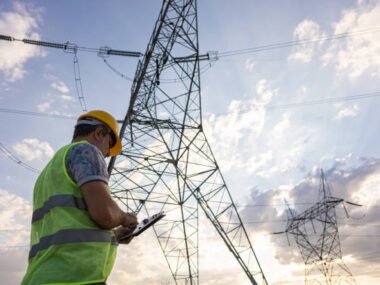How do I get visa sponsorship in the USA? Obtaining visa sponsorship in the USA is a crucial step for many individuals seeking to live, work, or study in the country.
Whether you’re an international student, a prospective employee, or a family member hoping to reunite with loved ones, understanding the visa sponsorship process is essential.
Visa sponsorship involves a U.S. citizen or permanent resident, or a U.S. employer, taking responsibility for your stay in the country.
This guide will walk you through the basics of visa sponsorship, including who can sponsor you, the types of visas available, and the steps involved in securing sponsorship.
We’ll also cover key aspects such as eligibility criteria, application procedures, and common challenges faced during the process.
By familiarizing yourself with these elements, you can better navigate the complexities of U.S. immigration and increase your chances of a successful application.
Whether you’re just starting your journey or are in the midst of the process, this comprehensive guide will help you understand how to get the support you need to achieve your goals in the United States.
How Do I Get Visa Sponsorship in the USA?
Securing visa sponsorship in the USA can be a pivotal step in achieving your immigration goals, whether you’re aiming to work, study, or join family members.
This comprehensive guide will help you understand the essentials of visa sponsorship, including the different types of visas, eligibility criteria, application processes, and more.
What is Visa Sponsorship?
Visa sponsorship is the process by which a U.S. citizen, permanent resident, or employer agrees to support your stay in the United States.
This support typically involves taking responsibility for your financial needs and ensuring that you comply with the terms of your visa.
Sponsorship is a requirement for many types of visas, especially those that involve employment or family connections.
Why is Visa Sponsorship Necessary?
Visa sponsorship is essential because it provides a guarantee to the U.S. government that you have a reliable source of support while in the country.
It also ensures that you meet the specific requirements set forth by immigration authorities.
Without a sponsor, your visa application may be denied, as there would be no assurance of your ability to support yourself or your compliance with visa conditions.
Eligibility Criteria for Visa Sponsorship
The eligibility to sponsor a visa depends on the type of visa you are applying for. Generally, the following entities can act as sponsors:
- Employers: For work visas, a U.S. employer must sponsor you by offering a job and filing the necessary paperwork with U.S. Citizenship and Immigration Services (USCIS).
- Family Members: For family-based visas, a U.S. citizen or lawful permanent resident can sponsor their relatives, including spouses, children, and siblings.
- Educational Institutions: For student visas, an educational institution in the U.S. can provide the necessary documentation for your visa application.
Who Can Be Sponsored?
Eligibility to be sponsored varies based on the visa type:
- Work Visas: Applicants must meet the job requirements and have a valid job offer from a U.S. employer.
- Family-based Visas: Applicants must have a qualifying relationship with the sponsor, such as being a spouse, child, or sibling.
- Student Visas: Applicants must be accepted into a SEVP-approved educational institution and demonstrate their ability to pay for their studies.
Types of Visas Requiring Sponsorship
Work Visas
Work visas allow you to live and work in the U.S. temporarily. Some common work visas include:
- H-1B Visa: For specialty occupations requiring a bachelor’s degree or higher.
- L-1 Visa: For intra-company transferees who hold managerial or executive positions or have specialized knowledge.
- O-1 Visa: For individuals with extraordinary abilities or achievements in their field.
Student Visas
Student visas enable individuals to study in the U.S. at an accredited institution.
Key student visas include:
- F-1 Visa: For academic students enrolled in a full-time program.
- M-1 Visa: For vocational or technical students.
Family-based Visas
Family-based visas allow U.S. citizens and permanent residents to bring family members to the U.S. Types of family-based visas include:
- IR (Immediate Relative) Visas: For spouses, minor children, and parents of U.S. citizens.
- F Visas: For other family members, such as adult children and siblings.
Finding a Sponsor
To secure a work visa, you need to find a U.S. employer willing to sponsor you. Strategies for finding a sponsor include:
- Job Searches: Apply for jobs in your field through job boards, company websites, and professional networks.
- Networking: Attend industry conferences, seminars, and networking events to connect with potential employers.
- Recruitment Agencies: Use agencies specializing in international placements to help you find employers willing to sponsor visas.
Seeking Sponsorship from Family Members
If you are applying for a family-based visa, your U.S. citizen or permanent resident relative will need to sponsor you.
Ensure you:
- Confirm Eligibility: Verify that your relationship with the sponsor qualifies under U.S. immigration laws.
- Provide Required Documentation: Submit necessary documents proving your relationship with the sponsor, such as birth certificates or marriage certificates.
Working with Immigration Attorneys
Immigration attorneys can provide invaluable assistance in navigating the sponsorship process.
They can help you:
- Understand Visa Requirements: Clarify the specific requirements for your visa type.
- Prepare Applications: Ensure that all forms and supporting documents are correctly completed.
- Resolve Issues: Address any problems or delays that arise during the application process.
Application Process for Visa Sponsorship
Step-by-Step Guide
- Determine Visa Type: Identify the appropriate visa based on your purpose of stay.
- Find a Sponsor: Secure a U.S. employer, family member, or educational institution to act as your sponsor.
- Collect Documentation: Gather all necessary documents, including forms, proof of sponsorship, and personal identification.
- File Petition: Your sponsor must file a petition with USCIS, such as Form I-129 for work visas or Form I-130 for family-based visas.
- Attend Visa Interview: Once your petition is approved, attend a visa interview at a U.S. consulate or embassy.
- Wait for Decision: After the interview, wait for a decision on your visa application.
Required Documentation
Common documents required for visa sponsorship applications include:
- Form I-129 (Work Visas): Petition for a Nonimmigrant Worker.
- Form I-130 (Family Visas): Petition for Alien Relative.
- Proof of Relationship: Marriage certificates, birth certificates, or other evidence of familial relationships.
- Employment Verification: Job offer letters, labor condition applications, or proof of employer’s ability to pay wages.
Common Mistakes to Avoid
To avoid delays or denials, be mindful of these common mistakes:
- Incomplete Forms: Ensure all forms are fully completed and accurate.
- Missing Documents: Provide all required supporting documentation.
- Incorrect Fees: Pay the correct fees and ensure they are submitted on time.
Costs and Fees Associated with Visa Sponsorship
Sponsor’s Financial Responsibilities
Sponsors are often required to demonstrate their ability to financially support the visa applicant.
This can involve:
- Affidavit of Support (Form I-864): U.S. sponsors may need to submit this form to prove their financial ability to support the applicant.
- Employment Verification: Provide evidence of income or employment to meet the financial requirements.
Applicant’s Costs
Visa applicants may incur various costs, including:
- Visa Application Fees: Fees for processing the visa application and attending the visa interview.
- Medical Examination Costs: Fees for required medical exams and vaccinations.
- Travel Expenses: Costs related to traveling to the U.S. consulate or embassy for the visa interview.
Timeline for Obtaining Visa Sponsorship
Processing Times
The processing time for visa sponsorship can vary based on several factors:
- Visa Type: Different visas have different processing times, with some taking several months or even years.
- USCIS Processing: Time required for USCIS to process the petition can vary.
- Consulate/Embassy Processing: Time for the visa interview and issuance at the U.S. consulate or embassy.
How to Expedite Your Application
To potentially speed up your application:
- Ensure Complete Documentation: Submit all required documents and forms accurately.
- Request Expedited Processing: For certain visa types, you may request expedited processing if you meet specific criteria.
- Stay Informed: Keep track of processing times and any updates from USCIS or the U.S. consulate.
Maintaining Visa Status Once Sponsored
Responsibilities of the Sponsor
Once you are in the U.S., your sponsor must continue to:
- Monitor Compliance: Ensure you comply with visa conditions and maintain legal status.
- Update Information: Notify USCIS of any changes in your situation, such as changes in employment or address.
Responsibilities of the Visa Holder
As a visa holder, you must:
- Adhere to Visa Conditions: Follow the terms of your visa, including employment restrictions or study requirements.
- Report Changes: Inform USCIS or the U.S. consulate of any changes to your personal or professional situation.
Troubleshooting and FAQs
Common Issues and Solutions
- Visa Denial: If your visa is denied, review the denial letter, address the reasons for denial, and consider reapplying or seeking legal advice.
- Processing Delays: Contact USCIS or the U.S. consulate for updates on your application status and address any issues promptly.
Where to Seek Help
If you encounter challenges during the visa sponsorship process, consider:
- Consulting Immigration Attorneys: Professional legal advice can help navigate complex situations.
- Contacting USCIS: Reach out to USCIS for specific questions about your application.
- Utilizing Support Services: Many nonprofit organizations and community groups offer assistance with immigration issues.
Conclusion
Securing visa sponsorship in the USA involves understanding the various types of visas, meeting eligibility requirements, and following a detailed application process.
By being informed and prepared, you can navigate the complexities of U.S. immigration and work towards achieving your goals.



